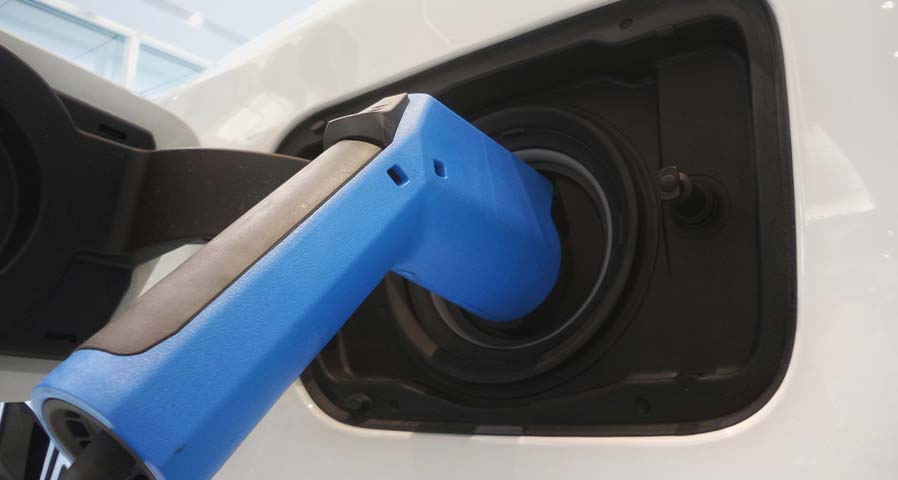Organizations choosing to install EV chargers want to get the right units for their location, customers, and business. Before you start looking at your software and hardware options, the first consideration is the type of chargers. Do you want to install Level 2 or Level 3 chargers or maybe you want a mix of both types of charging stations?
Level 3 (DC or fast chargers) are easy to use. EV drivers pull up and plug into the charging station. Level 3 stations can charge anywhere from 50 kW to 350 kW in 10 minutes. Level 2 (AC chargers) are a little slower, giving you around 7 kW every hour.
At first glance, it can seem like Level 3 chargers are your best option, but not always. Sometimes, it pays to have destination AC chargers. Some businesses want to encourage customers to linger while others want to move drivers along.
Considerations When Choosing Level 2 and Level 3 Chargers
Here are a few aspects to consider before committing to either AC or DC chargers.
Why Are You Installing the EV Charger
From a business perspective, ask yourself why you want to install EV chargers. The most common reason is to attract customers, but how long do you want them to stay? For a fast in-and-out, Level 3 DC chargers may be the best option. If you want the customers to linger, consider installing Level 2 Ac chargers.
Costs
Purchasing costs vary between AC and DC chargers. DC chargers are more expensive to purchase and install. To stay within budget, you may want to consider installing multiple AC (Level 2) chargers. This allows you to save money and provide charging access for multiple drivers.
Type of Connectors
Along with different charging station models, there are also various types of connectors. Level 3 chargers typically come with either CCS or CHAdeMO connectors, but you can also find units offering both types of connectors.
Consider Your Existing Infrastructure
Selecting EV chargers that are compatible with your current infrastructure will save time and money on installation costs. Level 3 chargers will draw more power from the electrical grid than Level 2 models. The additional electricity necessary to power DC chargers may mean an expensive upgrade to the grid.
When considering your current electrical infrastructure and what electrical capacity you will need to operate EV chargers, there are many questions you will need to answer. There are also substantial hidden costs that could blindside you. In our blog, EV Charging Infrastructure – Developing a Plan, we cover the initial considerations, hidden costs, and tips for developing an infrastructure plan.
Available Energy
The amount of available energy will affect the type of EV chargers you can install on the property. Check with your local power provider to learn more.
Customer Behavior
Businesses like service stations and fast-food restaurants may want to consider installing Level 3 chargers. The fast charging times will keep customers moving. Retail stores, hotels, and sit-down dining establishments are some examples of businesses that want their customers to linger. Level 2 chargers will top off their batteries while also giving them plenty of time at your business.
Your Business Model
Your business model includes how long you want, and what customers expect to stay at your establishment. Level 2 chargers encourage customers to stay longer and can often help increase sales. If your customers expect to stay only a short time at your business, Level 3 chargers are probably a better option.
Where Should You Use Level 2 Chargers
Level 2 or AC chargers are a good option for businesses that want their customers to stay around. This also includes businesses, like hotels, where consumers expect to be away from their vehicles for a while.
Benefits of Level 2 AC Chargers
- The driver can plug their vehicle in and forget about it while the EV is charging
- Drivers can leave the vehicles at the station after the EV is finished charging
- Level 2 chargers are less expensive to purchase and install
- Business owners can often install more AC chargers for the purchasing cost of a single Level 3 station.
- Level 2 chargers are easier to use and require less maintenance
- AC chargers are compatible with all types of electric vehicles
Challenges of Level 2 Chargers
- AC chargers are slower than DC fast chargers
- Installing multiple AC chargers may mean reconfiguring your parking lot
Where Should You Use Level 3 Chargers
Businesses where customers tend to stay for an hour or less may want to consider installing Level 3 chargers.
Benefits of Level 3 DC Chargers
- The quick charge time is converted to drivers
- Depending upon placement, can generate more revenue than AC chargers
- The unit’s larger size makes DC chargers easier to find in crowded parking lots
- Some EV drivers specifically search for Level 3 chargers, especially during long drives
Challenges of Level 3 DC Chargers
- More expensive to buy and install.
- Require more space and extra infrastructure work.
- Higher maintenance costs.
- Not all EVs can use DC chargers.
Apogee Charging Solutions Can Help Your Business Make the Right Decision
Deciding between Level 2 and Level 3 EV chargers can be confusing. Let Apogee Charging Solutions help with your decision. From explaining the benefits and potential downsides, to going over installation costs, we can help your business every step of the way.
Contact Apogee Charging Solutions today, by calling 484-816-2076, emailing [email protected], or schedule a call this fits your needs by clicking the button below.








0 Comments